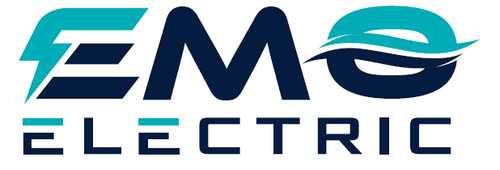Electric boat motors have emerged as a compelling option for boat owners, presenting a greener and potentially cost-effective alternative to traditional gas boat motors. It may seem like a significant financial commitment to purchase an electric outboard, however, the initial upfront cost will partially, or totally offset, your overall spending depending on how you use your boat and electric outboard. What are the cost differences between owning an electric boat motor and a gas boat motor?

Initial Investment
When considering the cost of owning a boat motor, the initial investment is a crucial factor. Electric boat motors typically have a higher upfront cost compared to gas boat motors. Electric motors require advanced battery technology and motor components, leading to a higher initial purchase price. However, it's important to note that the gap in initial investment has been gradually decreasing as technology advances and economies of scale come into play.
Fuel and Energy Costs
One of the most significant differentiators between electric and gas boat motors lies in their ongoing fuel and energy costs. Electric motors are inherently more efficient and cost-effective in terms of energy consumption. Electricity is generally cheaper than gasoline on a per-unit energy basis, which means that the cost of charging an electric boat motor is considerably lower than refueling a gas boat motor. Over the lifespan of the motor, these savings can accumulate significantly.

Maintenance and Repairs
Maintenance and repair costs also play a pivotal role in the overall cost of owning a boat motor. Electric boat motors have fewer moving parts compared to their gas counterparts, resulting in lower maintenance requirements. Electric motors lack complex internal combustion engines, which means they require less frequent oil changes (or sometimes none at all), have fewer wear-and-tear components, and are generally less prone to breakdowns. This translates to reduced maintenance expenses, fewer visits to marine mechanics, and more time on the water using your boat!

Longevity and Lifespan
Electric boat motors are designed to have a longer lifespan compared to gas outboards. Gas outboards tend to wear out more quickly due to the intense mechanical and thermal stresses they endure during operation. Electric motors, on the other hand, have fewer components that experience depletion, leading to a longer operational life. This longevity can offset the initial higher cost of an electric motor over its extended service life.
Environmental Incentives
Governments and environmental agencies around the world are increasingly offering incentives to promote the adoption of electric vehicles, including electric boat motors. These incentives can come in the form of tax credits, rebates, reduced registration fees, and access to restricted areas. By taking advantage of such incentives, boat owners can further offset the initial investment cost of an electric motor and potentially level the playing field in terms of overall cost. While we are not aware of any federal tax incentives currently active for small electric outboards, we expect states and the federal government to offer incentives in the future as they've done with other new, environmentally friendly technology.

Crunch the Numbers: Yamaha 40hp Four Stroke vs. Flux Marine's FM40
The cost of a brand new Yamaha 40hp Four Stroke outboard is about $11,500. Whereas Flux Marine's 40hp electric outboard, including battery and charger, is about $15,500. That $4000 difference can be made up quite quickly. The Yamaha would (conservatively) cost you about $900 per year between gas ($300), winterization ($250), and regular maintenance ($350). Flux Marine's electric outboard would cost you about $100 per year in electricity. After five years, the Flux electric outboard would cost you $500 and the Yamaha would cost you $4500. The extra $4000 from your initial investment has been offset, and going forward you'd save $800 per year. While these numbers are rough estimates, the idea here is clear, and numbers will likely shift in favor of electric outboards as gas prices increase and the cost of electric outboards and lithium batteries come down.
In Conclusion
The cost differences between owning an electric boat motor and a gas boat motor are multifaceted. While electric boat motors typically come with a higher initial investment, they offer significant advantages in terms of lower ongoing fuel and energy costs, reduced maintenance and repair expenses, longer lifespans, and potential environmental incentives. As technology continues to evolve, the upfront cost of electric motors is likely to decrease, making them even more economically competitive. When assessing the overall cost, boat owners must consider their long-term financial goals, environmental values, and the evolving landscape of the boating industry.
If you're considering switching to an electric outboard, please don't hesitate to send us an email. We'd be happy to help!

